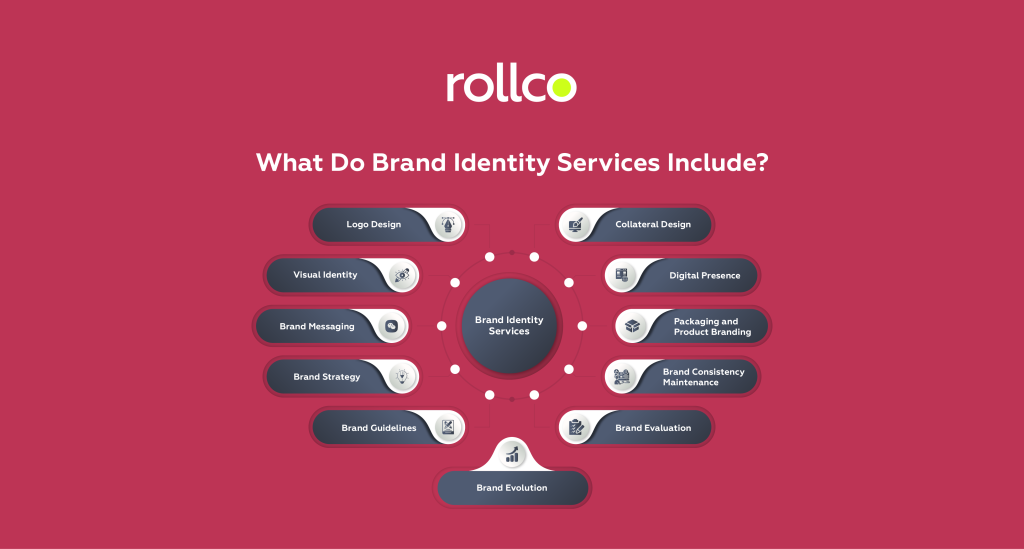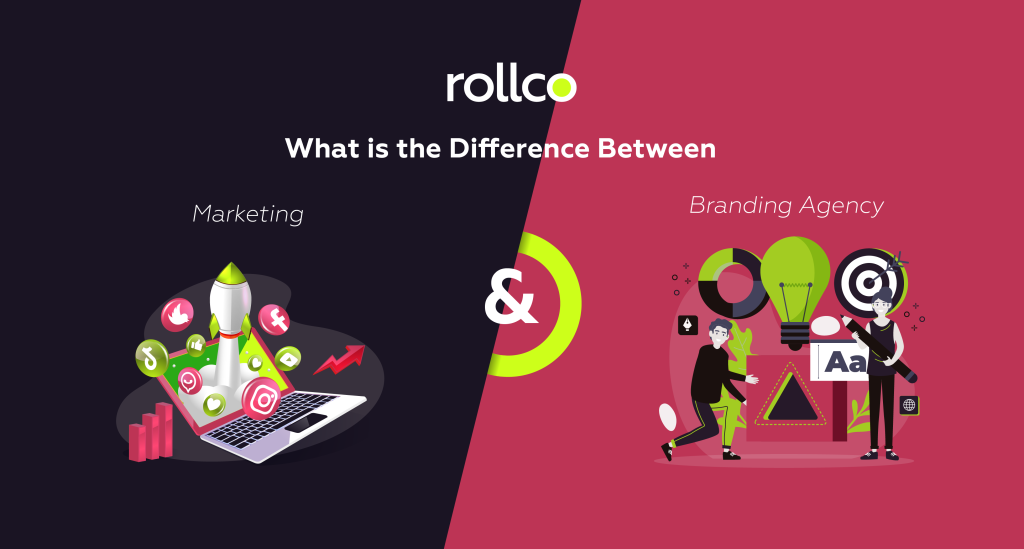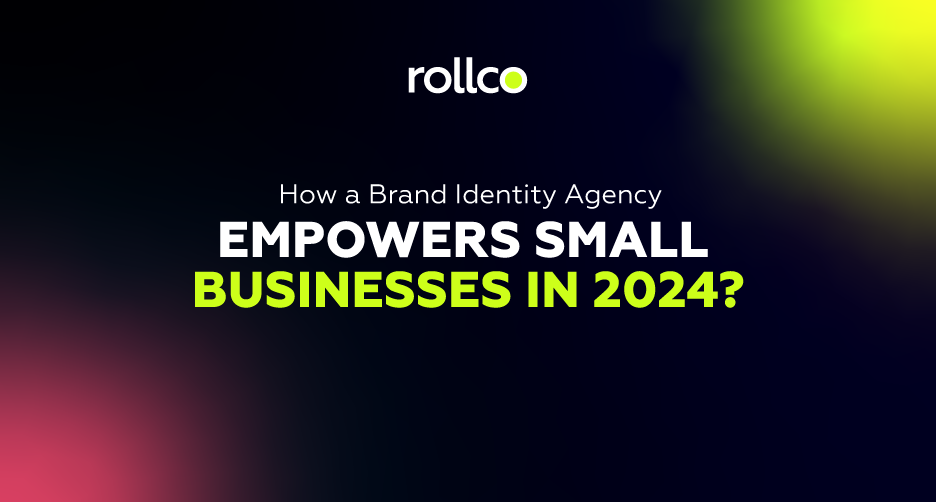In today’s competitive business landscape, establishing a strong brand identity is crucial for the success of small businesses. A well-defined brand identity service not only sets your business apart from the competition but also builds trust and recognition among your target audience. To achieve this, small enterprises are increasingly relying on the expertise of a dedicated branding agency for small business to receive professional assistance. In this blog post, we’ll explore how a branding agency can empower small businesses in 2024 and provide valuable branding tips specifically tailored for small businesses.
What Does a Branding Agency Do?
A branding agency is a professional firm dedicated to enhancing and managing the brand image of businesses and organizations. These agencies play a pivotal role in helping companies create, develop, and maintain a unique and compelling brand identity.
Their services encompass a wide range of activities, such as market research, brand strategy development, logo design, visual identity creation, messaging and content development, and brand management.
By conducting thorough market analysis and understanding the target audience, branding agencies craft strategies that effectively position the brand in the marketplace.
They ensure that the brand’s messaging, visual elements, and tone are consistent across all touchpoints, including websites, social media, advertising, and marketing materials.
Ultimately, the goal of a branding agency is to help businesses establish a strong and memorable brand presence that resonates with their audience and drives success in their respective industries.
The Importance of Branding for Small Businesses
Small businesses often face unique challenges when it comes to branding. Limited budgets, fierce competition, and the need to stand out in crowded markets can make branding seem like an uphill battle. However, investing in a strong brand identity is a game-changer. Here’s why:

1. Differentiation in Competitive Markets
Small businesses can struggle to differentiate themselves from competitors. A Brand Identity Agency helps create a unique and compelling brand that sets you apart, making it easier for customers to choose your products or services.
2. Building Trust and Credibility
Trust is a cornerstone of successful businesses. A well-crafted brand identity instills confidence in your audience, reassuring them that your business is professional, reliable, and here to stay.
3. Attracting Your Ideal Audience
Effective branding helps you attract and retain your ideal customers. It communicates your values, mission, and what makes your business special, resonating with the right people.
Why do I Need a Branding Agency?
Engaging a branding agency for small businesses can be immensely beneficial for various compelling reasons:

Expertise: Branding agencies possess specialized knowledge and skills in creating and managing brand identities.
Market Insight: They conduct in-depth market research to understand your target audience and competition.
Differentiation: Branding agencies help you stand out in crowded markets by crafting a unique identity.
Trust and Credibility: A strong brand builds trust and credibility with customers and stakeholders.
Consistency: They ensure consistent branding across all platforms and touchpoints.
Scalability: Brands created by agencies can adapt and grow with your business.
Cost-Effective Solutions: Many agencies offer tailored packages to fit various budget constraints.
Creative Design: They excel in logo design, visual identity, and compelling messaging.
Online Presence: Agencies optimize websites and develop effective social media strategies.
Growth and Success: A well-crafted brand identity can lead to increased market share and revenue.
What Do Brand Identity Services Include?
Brand identity services encompass a range of offerings designed to help businesses establish, enhance, and maintain a compelling and consistent brand image. Here are the key components of brand identity services:

Logo Design:
Creating a distinctive and memorable logo that represents your brand.
Visual Identity:
Establishing consistent design elements, such as color palettes, typography, and imagery.
Brand Messaging:
Developing taglines, and slogans, and defining the tone of voice for your brand.
Brand Strategy:
Crafting a comprehensive plan that outlines your brand’s objectives, target audience, and competitive positioning.
Brand Guidelines:
Creating a set of rules and standards to maintain brand consistency in all materials.
Collateral Design:
Designing marketing materials like business cards, letterheads, and brochures.
Digital Presence:
Optimizing website design, social media profiles, and digital marketing materials to align with the brand.
Packaging and Product Branding:
Designing packaging and product labels that reflect the brand identity.
Brand Consistency Maintenance:
Ongoing efforts to ensure branding remains consistent and adapts to changing market conditions.
Brand Evaluation:
Periodic assessments to gauge the effectiveness of the brand identity and make necessary adjustments.
Brand Evolution:
Recommendations for evolving the brand to stay relevant and aligned with business goals and customer preferences.
The Impact of a Branding Agency for Small Business Success
1. Establishing a Strong Brand Identity
A branding agency’s expertise in crafting unique and compelling brand identities can significantly impact a small business’s success. By creating memorable logos, defining visual elements, and crafting compelling messaging, a branding agency helps small businesses stand out in competitive markets.
2. Building Trust and Recognition
Trust and recognition are invaluable assets for small businesses. A branding agency ensures that your brand communicates professionalism, reliability, and consistency, building trust among customers and stakeholders while increasing brand recognition.
3. Effective Market Positioning
Effective branding agencies conduct in-depth market research to understand a small business’s target audience and competition. This information enables them to strategically position the brand, making it more appealing to the right customers.
4. Consistency Across All Touchpoints
Consistency is key in branding. A branding agency ensures that the brand message, visual elements, and tone remain consistent across all platforms, from the website and social media to packaging and marketing materials.
5. Scalability and Adaptability
Small businesses often evolve over time. Branding agencies create brands that can grow with the business, ensuring the brand identity remains relevant and adaptable to changing market dynamics.
6. Cost-Effective Solutions
Contrary to the misconception that branding agencies are only for larger corporations, many offer tailored packages and pricing options to suit small business budgets. This makes professional branding services accessible to businesses of all sizes, amplifying their impact on success.
What is the Difference Between a Marketing and Branding Agency?
Marketing and branding agencies serve distinct but complementary roles in promoting a business or organization. Here are the key differences between the two:

Marketing Agency:
Focus: Marketing agencies primarily concentrate on promoting products or services, increasing sales, and achieving specific business objectives, such as lead generation, conversions, or revenue growth.
Tactics: They employ a wide range of tactics and strategies to drive immediate results, including advertising campaigns, social media management, content marketing, search engine optimization (SEO), pay-per-click (PPC) advertising, email marketing, and more.
Short-Term Goals: Marketing agencies often work on short-term campaigns designed to achieve specific, measurable outcomes, such as boosting website traffic, increasing sales for a product launch, or generating leads.
Metrics: Measurement and analytics play a significant role in marketing agencies, as they focus on tracking the ROI of various campaigns and optimizing strategies based on data.
Customer Acquisition: Marketing agencies are primarily concerned with customer acquisition and lead generation, aiming to convert potential customers into paying ones.
Branding Agency:
Focus: Branding agencies focus on shaping and defining the overall perception, identity, and reputation of a brand. They concentrate on long-term brand development, identity, and positioning.
Strategic: Their work is more strategic and involves defining a brand’s core values, mission, and personality. They create a brand’s visual identity, messaging, and positioning in the market.
Long-Term Goals: Branding agencies have a long-term vision, aiming to build and maintain a strong and consistent brand image that resonates with customers over time.
Consistency: Maintaining consistency in the brand’s visual and messaging elements across all touchpoints is a top priority for branding agencies to ensure brand recognition and trust.
Customer Loyalty and Trust: Branding agencies are focused on building customer loyalty and trust by creating a distinct brand personality and emotional connection with the target audience.
Conclusion
In 2024, small businesses must recognize the power of a well-crafted brand identity. A Brand Identity Agency can be the catalyst for success, offering expertise, consistency, scalability, and cost-effective solutions. By investing in branding services for small businesses, you can stand out in competitive markets, build trust with your audience, and attract your ideal customers, ultimately driving growth and success for your business. Don’t underestimate the impact a strong brand identity, with the guidance of a branding agency for small business, can have on your small business’s journey to success.

